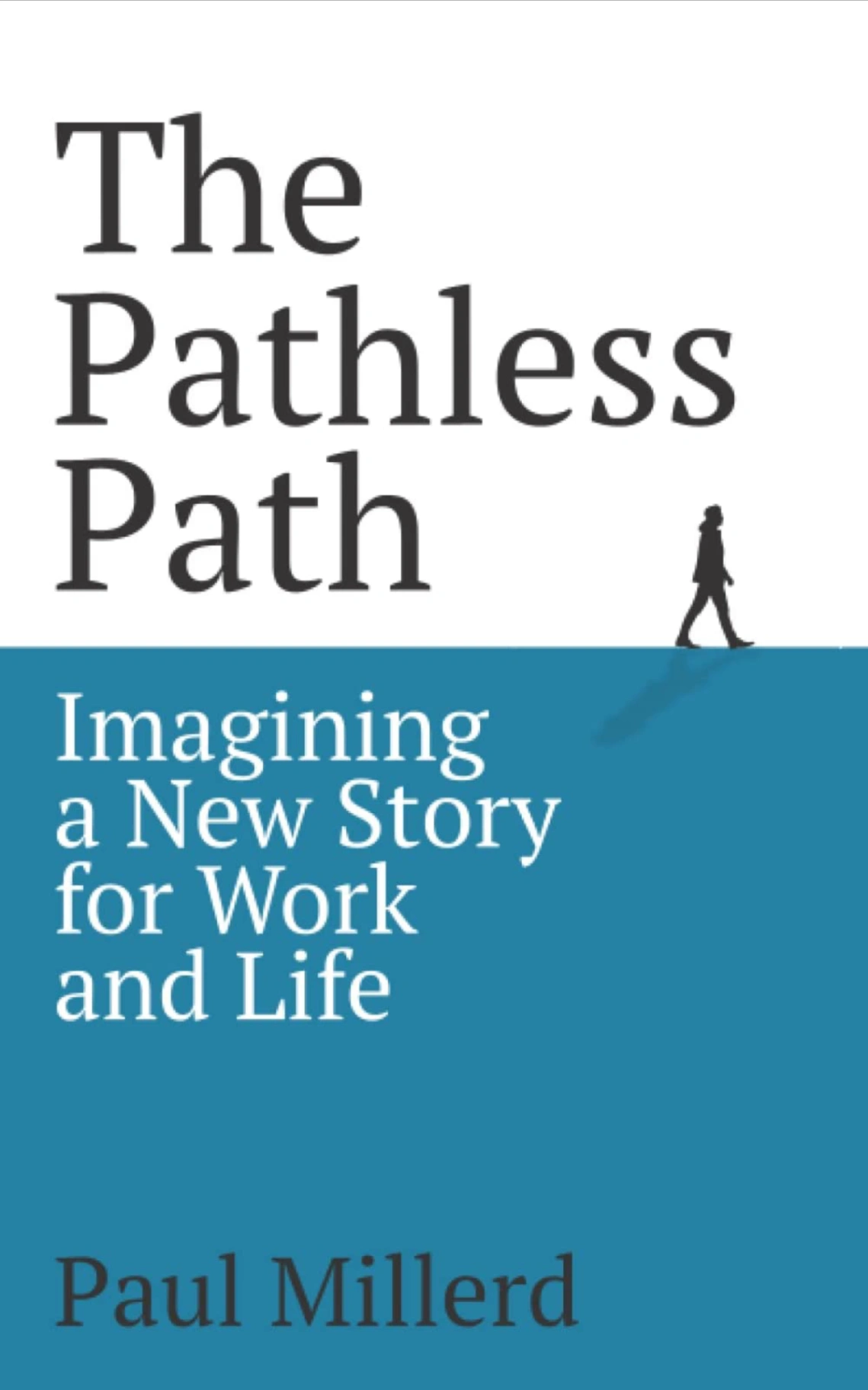10 Things I Learned from Having my First Virtual "Curiosity Conversation"
Author & podcaster Paul Millerd holds weekly no-agenda "Curiosity Conversations" with anyone interested in talking with him.
I've been reading his book The Pathless Path, about stepping away from the default narratives of success and transforming our relationship to work. It resonates with me deeply.
I signed up to have a Curiosity Conversation with him over Zoom recently. Here are 10 things I learned from our call, both about the experience and the content—the pathless path.
Here's Paul's website: https://think-boundless.com/
I've been reading his book The Pathless Path, about stepping away from the default narratives of success and transforming our relationship to work. It resonates with me deeply.
I signed up to have a Curiosity Conversation with him over Zoom recently. Here are 10 things I learned from our call, both about the experience and the content—the pathless path.
Here's Paul's website: https://think-boundless.com/

Preview
1. IDEAS ABOUT THE EXPERIENCE: Make serendipity possible
0
I was reading his book, mentioned it in a video I made with my sister about book recommendations, posted the video on Twitter, and tagged him.
I didn't know what would come of it, but I put something out into the universe (the Twitterverse in this case), where a web of serendipitous connections is possible.
2. Be open to serendipity
0
3. Be generous with your ideas and resources
0
He also shared what he's still experimenting with and trying to figure out.
I, in turn, shared my story with him, the questions I'm pursuing, and even a book I thought he'd be interested in.
4. IDEAS ABOUT THE PATHLESS PATH: People don't talk about these things in public.
0
We're made to believe that such concerns are our individual burdens to bear. Thus we don't reach out to find others with the same questions.
And yet, in a space that's dedicated and open to these ideas, like a Curiosity Conversation, people are happy to share their thoughts with him.
5. Stepping off the default path involves managing other people's discomfort.
0
I think it triggers 2 things in them: envy of someone choosing an alternative path they feel like they didn't have access to and insecurity about their worldview being challenged.
6. No one in academia recommends academia.
0
While he already felt like the constraints of academic work that revolves around peer-reviewed publication would kill his curiosity, no academic he's met has ever tried to convince him of the path's merit, either.
7. Indie & self-directed research is a thing.
0
It reminds me of the idea of citizen scientists or "Dark Horses" as Todd Rose describes them: https://www.gse.harvard.edu/news/ed/19/08/follow-dark-horse
8. Consider how I might design my own PhD program.
0
But I still have academic aspirations. Is there a viable alternative path outside of academia where I can learn research skills and contribute meaningfully to my fields of interest? If so, I want to take it.
9. Build mentorship into your journey.
0
But I know that it's also my responsibility to build in mentorship around me: by reaching out, by asking, by reading, by contributing something to people who I learn from. And I know now that mentorship can be as much virtual as it is physical.
10. My mentors are my age now—and all other ages.
0
This is new for me. I was always the youngest one around, seeing people much older than me as my only potential mentors. But now I'm learning every day from people my age and younger.
It makes the learning journey lively and dynamic.


No comments.